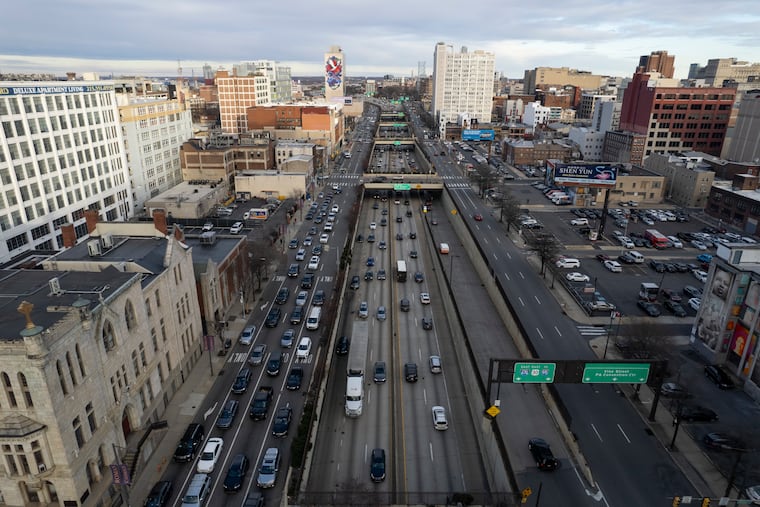Chinatown Stitch gets a starring role in a new documentary from Pete Buttigieg
The U.S. Department of Transportation is making short documentary-style videos about a half dozen Reconnecting Communities projects. Chinatown stars in one of the first.

To really understand what Philadelphia’s Chinatown Stitch means, you need to get beyond statistics and jargon to “the human stories behind how this got done,” Transportation Secretary Pete Buttigieg said Monday in an interview.
That’s why department decided to make short documentaries spotlighting projects in the Biden administration’s $3.3 billion program to help heal neighborhoods divided and injured by past federal transportation and infrastructure decisions.
The second episode, released Monday, features the effort to cover part of the sunken Vine Street Expressway to knit together Chinatown and the area known as Chinatown North, severed decades ago by the interstate.
Last year, the U.S. Department of Transportation awarded a $159 million grant to build a cap, which would reach from 10th to 13th Streets and include development of a public park over the expressway.
The project is one of about 100 to receive money from the department’s Reconnecting Communities program, part of the bipartisan infrastructure act of 2021.
“The whole philosophy of this program is that federal dollars can be part of the solution and can heal, where they previously may have contributed to a problem,” Buttigieg said. “Chinatown Stitch is a great example of that.”
It grew from six decades of resistance.
“This project didn’t happen because some planner here in Washington drew up a way to fix things,” Buttigieg said. “It happened because the community rose up, as they tried to do in the first place starting in the ‘60s.”
Cecilia Moy Yep, the activist who led Chinatown’s protests against the Vine Street Expressway, is the narrative voice of the 5 minute, 40 second video.
“Want to hear a story? I’ve got one,” she begins.
Buttigieg acknowledged that federal dollars could never make full restitution for what was done to Chinatown and other U.S. communities. Planning continues on what to build on the expressway cover, and the Stitch project is sure to need more support before it is finished.
“It’s about paying attention to overburdened and underserved communities with every policy decision and every investment that we make,” he said.
The Vine Street Expressway was on Buttigieg’s mind from the beginning of his time as U.S. transportation secretary. He tweeted about it in response to a vigil against Asian hate in Philadelphia weeks into his tenure, as the administration negotiated with congressional Republicans to include Reconnecting Communities in the infrastructure bill taking shape.